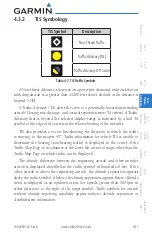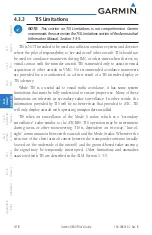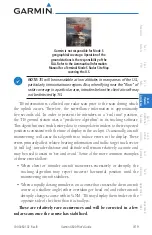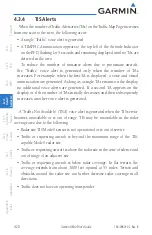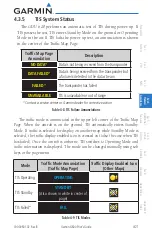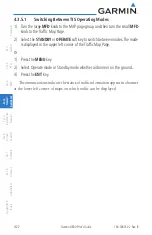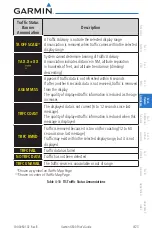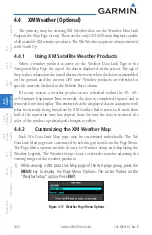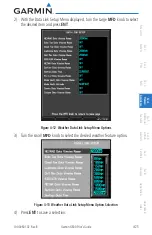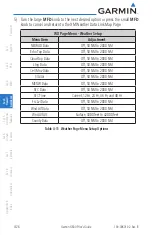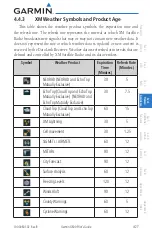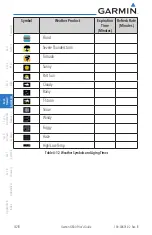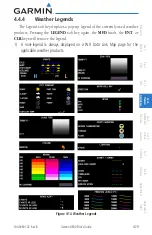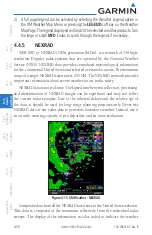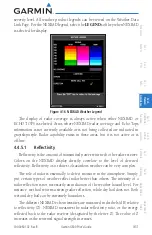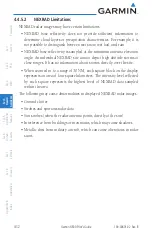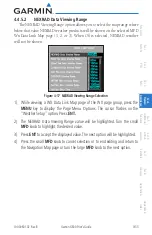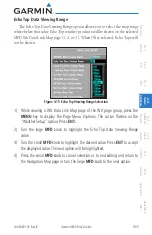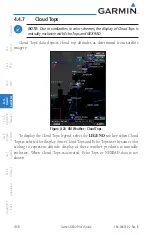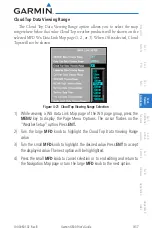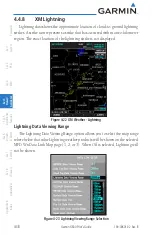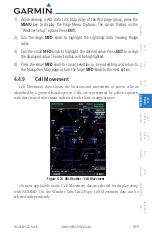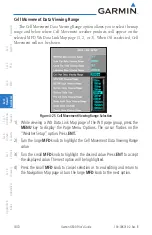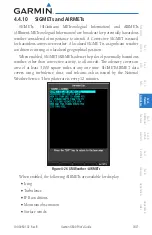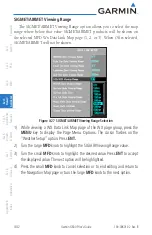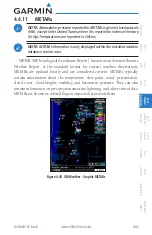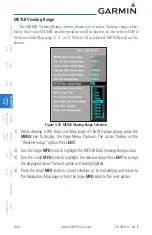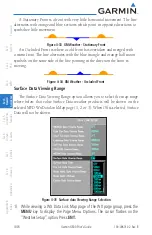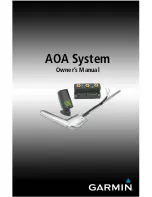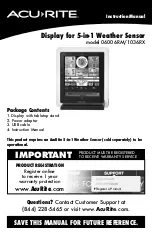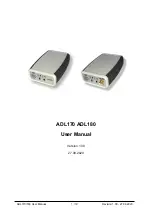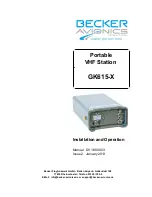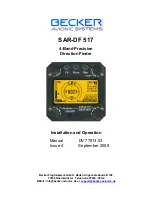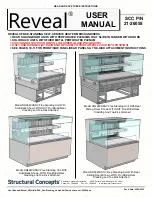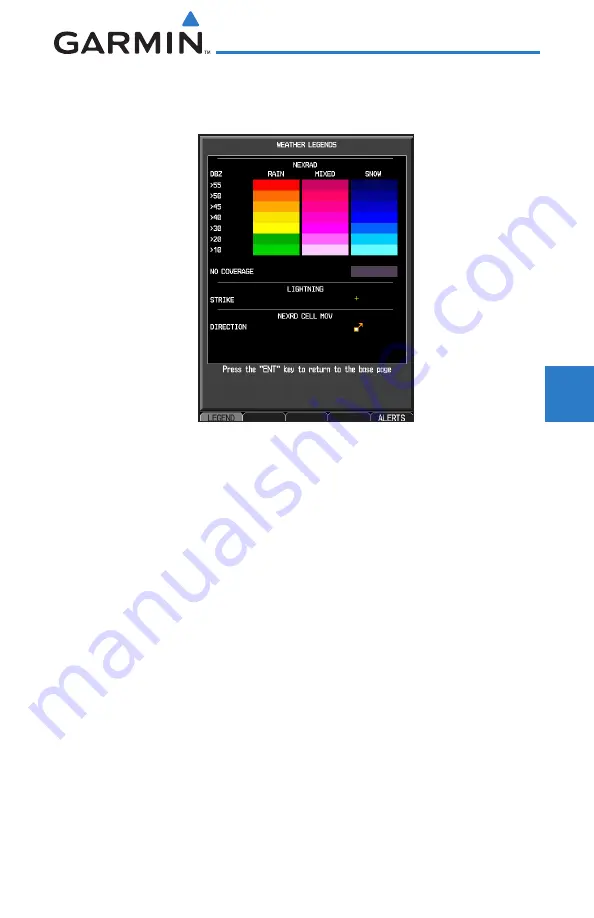
4-31
190-00601-02 Rev. B
Garmin G600 Pilot’s Guide
For
ewor
d
Sec 1
System
Sec 2
PFD
Sec 3
MFD
Sec 4
Hazar
d
Avoidance
Sec 5
Additional
Featur
es
Sec 6
Annun.
& Alerts
Sec 7
Symbols
Sec 8
Glossary
Appendix A
Appendix B
Index
severity level. All weather product legends can be viewed on the Weather Data
Link Page. For the NEXRAD legend, select the
LEGEND
soft key when NEXRAD
is selected for display.
Figure 4-16 NEXRAD Weather Legend
The display of radar coverage is always active when either NEXRAD or
ECHO TOPS is selected. Areas where NEXRAD radar coverage and Echo Tops
information is not currently available or is not being collected are indicated in
grayish-purple. Radar capability exists in these areas, but it is not active or is
off-line.
4.4.5.1
Reflectivity
Reflectivity is the amount of transmitted power returned to the radar receiver.
Colors on the NEXRAD display directly correlate to the level of detected
reflectivity. Reflectivity as it relates to hazardous weather can be very complex.
The role of radar is essentially to detect moisture in the atmosphere. Simply
put, certain types of weather reflect radar better than others. The intensity of a
radar reflection is not necessarily an indication of the weather hazard level. For
instance, wet hail returns a strong radar reflection, while dry hail does not. Both
wet and dry hail can be extremely hazardous.
The different NEXRAD echo intensities are measured in decibels (dB) relative
to reflectivity (Z). NEXRAD measures the radar reflectivity ratio, or the energy
reflected back to the radar receiver (designated by the letter Z). The value of Z
increases as the returned signal strength increases.
Summary of Contents for G600
Page 1: ...G600 Pilot s Guide ...
Page 239: ......

